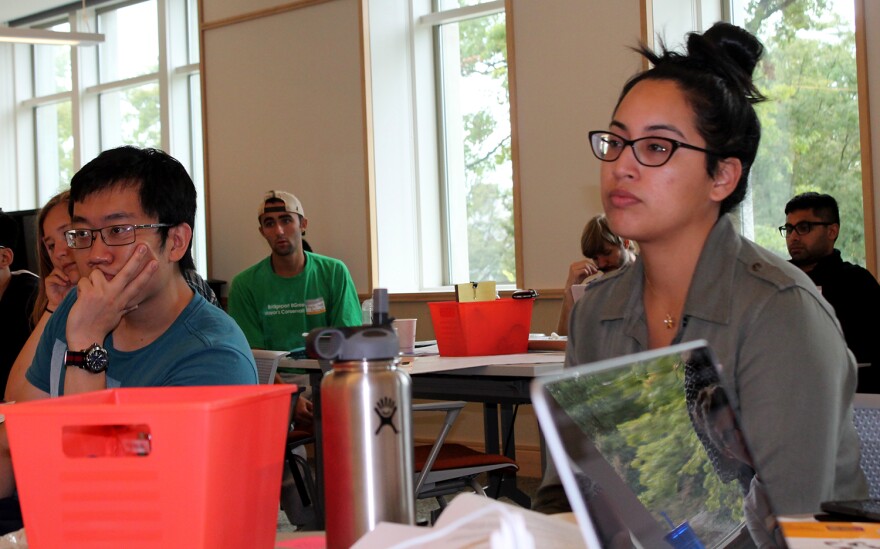About 30 Washington University students are competing for funds to develop projects to reduce gun violence this weekend.
It’s the latest effort in the university’s on-going gun violence initiative launched almost a year and a half ago.
“We want more student involvement in this public health issue. And also we want them to come up with innovative ideas on how we can solve gun violence since usually (the ideas come) from researchers,” saidinitiative coordinator Poli Rijos.
While a number of anti-violence efforts already exist in St. Louis, including a coalition involving the university, Rijos said the purpose of the weekend’s Gun Violence Public Health Challenge isn’t to reinvent the wheel.
“We’re not trying to create a new company or a new idea, but something that could strengthen an idea that may be already in place,” Rijos said. “And it doesn’t have to be obvious. It could be helping an after-school program. It could be helping a database that we’ve been developing. It could be assisting programs that are already in place at the hospital.”
By Saturday morning the students had broken up into teams and started brainstorming ideas.
Bioinformatics PhD student Kuan Huang’s team decided to look into toddler deaths.
“Originally I thought about gun control, but a lot of policy is involved in that. And one thing we’re just talking about is involving the community or focusing specifically on toddler’s deaths or children’s deaths related to guns,” Huang said.
“Our options are definitely open, but we are kind of revolving around the idea of gun culture, gun safety especially regarding younger population(s),” added his teammate, Christina Arzate, a Master’s student studying public health.

During an expert panel Saturday morning, a group of law enforcement, medical professionals, social workers and advocates that deal with gun violence every day shared their experience with the students before answering questions.
Master’s in Occupational Therapy student Tim Pemberton asked about the apparent difference between statistics and perception.
“From the statistical standpoint it seems like homicides are on the decline but when you talk to people in the community they always say that things are getting worse, progressively worse,” Pemberton said. “Are things getting worse or are things starting to improve?”
By August 2016, the homicide rate for the city of St. Louis was slightly less than 2015. The rate in St. Louis County was slightly higher.
Matthew Brummund of the FBI said violent crime is a better statistic for gun violence than homicide, a point driven home by Barnes Jewish trauma surgeon Laurie Punch.
“At the hospital at Barnes, which is the Level One Trauma Center here, in July we had 45 more trauma admissions than we’ve ever had ever, including compared to the worst July that we’ve ever had last year,” Punch said. “So we save people but that doesn’t mean they’re not still victims.”

Pemberton’s team is thinking of developing an early education program that helps children move in a positive direction.
“We’ve focused on employment and skill building so far in just the kind of informal conversations we’ve had,” Pemberton said. “How we can engage specifically youth that are perhaps susceptible to becoming involved with gangs and gun violence and trying to encourage an alternative path.”
The students that present the most promising ideas Sunday will be given $2,225 to get started.
The university also will connect the students to mentors that can partner with them and centers that can help them fine tune their plans and find further funding.
Follow Camille on Twitter: @cmpcamille.








